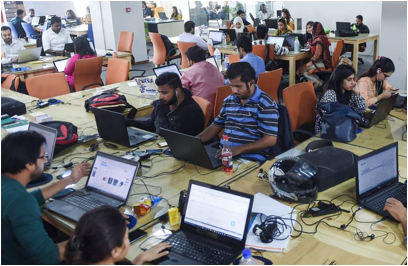INP-WealthPk
Ahmed Khan Malik
The Sindh government plans to roll out a series of initiatives to foster innovation and boost economic growth. "This move is part of a broader strategy to strengthen the province’s position as a hub of entrepreneurship, technology, and innovation in Pakistan,” Tasawwar Jilani, Director of Enterprise Development Wing, Sindh, told WealthPK.

By providing financial, infrastructural, and policy support, the government seeks to uplift the growth of startups, promote entrepreneurship, and contribute to job creation and economic diversification, he said. One of the key strategies includes providing access to the capital through venture funding, grants, and low-interest loans to early-stage startups. These financial resources are essential for new businesses that often struggle with initial funding and access to investment.

Additionally, the government plans to collaborate with the private sector partners, financial institutions, and international development agencies to offer mentorship and capacity-building programs. These initiatives will equip entrepreneurs with the necessary skills and knowledge to scale up their businesses and navigate the challenges that come with growing a startup in today’s competitive environment. “To ensure the sustainability and growth of startups, Sindh is planning to establish specialized incubation centers and innovation hubs.
These hubs will provide the budding entrepreneurs with a collaborative space to work and access modern technological infrastructure, and opportunities to network with potential investors, mentors, and business leaders. By fostering a culture of innovation and collaboration, these centers will help entrepreneurs refine their ideas, develop prototypes, and bring their products or services to market,” he said. Jilani pointed out that the incubation centers will also offer advisory services on legal, financial, and operational matters, ensuring that the startups have the right tools and expertise to succeed.
Moreover, these centers will facilitate knowledge-sharing sessions and workshops focused on product development, marketing strategies, and business scaling, he said. Jilani said the government recognized that a supportive regulatory environment was critical for the success of startups. As part of its commitment to the startup ecosystem, Sindh is working on simplifying the process of business registration, providing tax incentives, and reducing the red tape.
These measures are designed to make it easier for entrepreneurs to launch their businesses and focus on innovation rather than navigating complex administrative hurdles. Moreover, the government is exploring the possibility of offering tax exemptions for startups in their initial years, allowing them to reinvest their profits into scaling up their operations. Such incentives will help reduce financial burden on the new businesses and give them a breathing space to grow, he said.
In a bid to tap into the potential of the youth, the Sindh government is forging partnerships with the universities, research institutions, and technical schools to bridge the gap between academic knowledge and entrepreneurial activity. By establishing startup-friendly campuses and research partnerships, the government aims to inspire the students and young professionals to pursue entrepreneurial ventures, particularly in the fields of engineering, technology, and business, Jilani added.
Credit: INP-WealthPk




